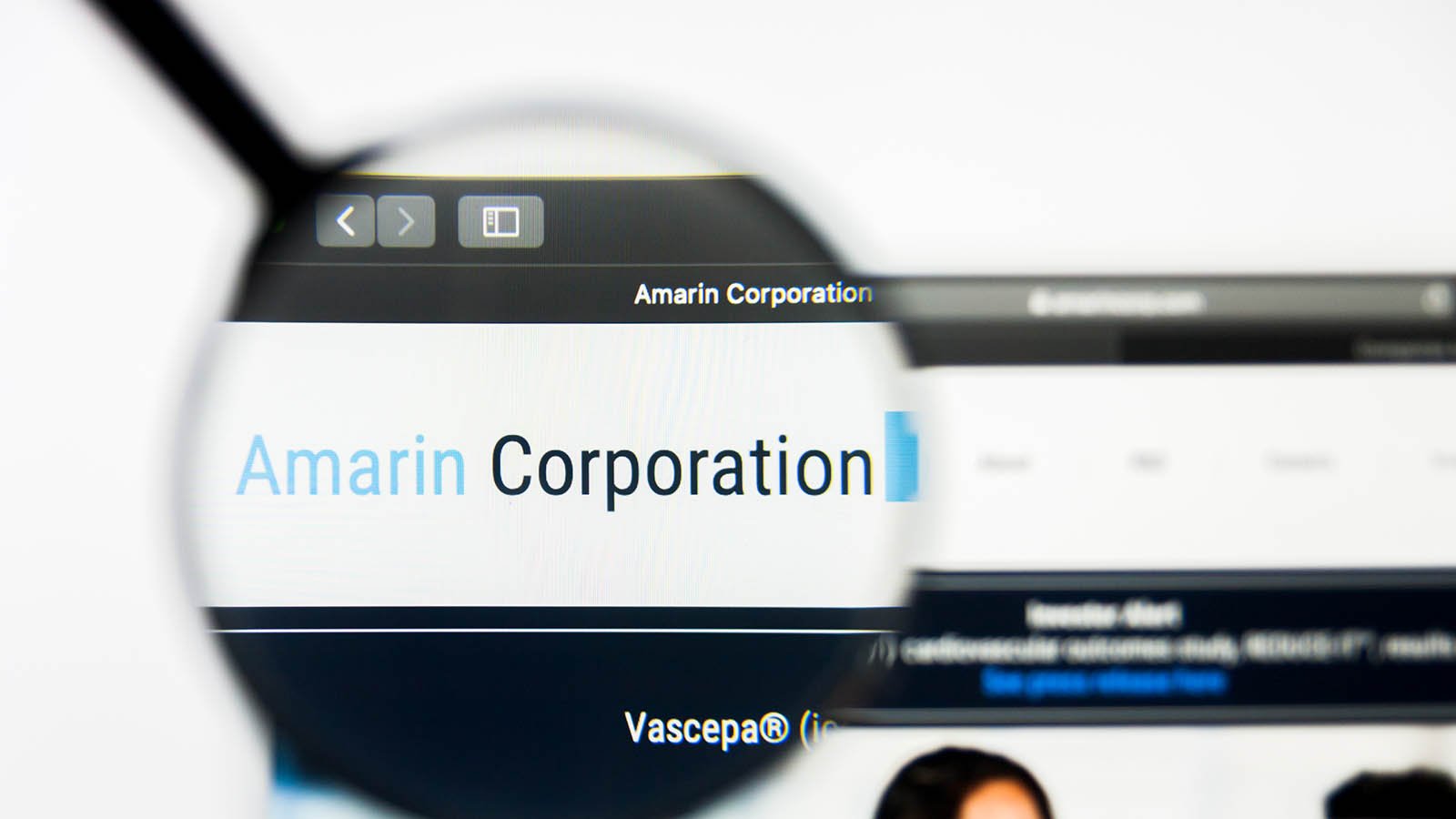Risks Remain, but Amarin Stock Is a Buy at Today’s Prices
Recent developments could mean plenty of upside left on the table
Is there more upside in the cards for Amarin (NASDAQ:AMRN) stock? Shares soared late last year on news of the company’s flagship Vascepa treatment receiving an expanded label. But after climbing from around the $15 price level to as high as $26.12/share, interest cooled.

When I last wrote about Amarin stock in mid-January, shares traded just under $20/share. Since then, the stock has tread water with shares closing at $18.18 on Feb. 12.
One can argue that Vascepa’s potential is already priced into shares. But, with similar treatments from competitors facing headwinds, Amarin stock could move higher as analysts anticipate even greater potential sales. On the other hand, nothing’s for certain in the biotech game.
Things could turn on a dime, pushing Amarin shares back down to prior levels. Yet upside may outweigh risks for Amarin stock. Let’s dive in and find out why.
Amarin Stock Could Move Higher as Competitors Flounder
In my last Amarin stock article, I discussed how Vascepa’s upside potential could be thwarted by competition. AstraZeneca’s (NYSE:AZN) Epanova and Acasti Pharma’s (NASDAQ:ACST) CaPre face headwinds. Both yielded disappointing Phase 3 results. AstraZeneca is now throwing in the towel on Epanova. Acasti is investigating why, as InvestorPlace’s Josh Enomoto reported, CaPre was no more effective than a placebo.
With these competitors floundering, things look brighter for Vascepa. In other words, there’s good reason why Amarin stock could head higher. Yet in the past month, shares haven’t budged due to the news. Some investors remain skeptical of Vascepa’s prospects. What’s driving this negative sentiment? Competitive risk from generics.
Two major generic drug-makers, Dr. Reddy’s (NYSE:RDY) and Hikma (OTCMKTS:HKMPF) have generics in their pipeline similar to Vascepa. As I wrote in my prior Amarin stock analysis, both generic makers challenged Vascepa’s patent. The uncertainty of this litigation is largely what’s keeping Amarin shares from heading higher.
Jeffries’ Michael Yee is confident in Amarin’s chances of winning the case. Proceedings in the case have ended, with a written ruling due by March 31. The analyst believes, based on the evidence presented, the court will rule in Amarin’s favor. Yee gives shares a “buy” rating with a $30 price target.
With these new developments, it seems Vascepa has a clearer shot of becoming a blockbuster drug. However, buying Amarin stock today is no slam-dunk. Multi-billion dollar sales figures are years away. Based on Amarin’s guidance, the company should generate between $650 million-$700 million in revenue this year. That’s a big jump from 2019’s $425 million in sales. But a far cry from Stifel’s estimated $3 billion in peak annual sales.
What’s Amarin Worth to An Acquirer?
Annual sales have a long way to go before hitting the estimated peaks. That’s not to say Amarin stock isn’t worth more than its current trading price. Despite selling for around 9.4 times estimated 2020 sales, I reiterate Amarin remains a takeover target.
Amarin stock is no stranger to takeover talk. Major pharma names find it easier to “buy” new drugs instead of spending billions more on R&D. So far, Amarin has decided to “go it alone.” But, I don’t see Amarin’s board saying no if the price is right.
So, what’s a fair takeover price for Amarin? Let’s assume Vascepa does hit $3 billion in peak sales. Major pharma names like GlaxoSmithKline (NYSE:GSK) and Novartis (NYSE:NVS) have gross margins between 68% and 71%. That implies peak gross profits for Vascepa of around $2 billion.
With fixed overhead costs, a major pharma name could add much of this gross profit to the EBITDA line. GSK and NVS have EBITDA margins around 30%, implying fixed costs around 35%-40% of sales. Let’s estimate Vascepa’s overhead costs are just 30% of sales. That means estimated EBITDA of around $1.14 billion.
GSK stock has an EBITDA multiple of 10.3. Novartis has an EBITDA multiple of 15.4. Other names, like Sanofi (NASDAQ:SNY) and Pfizer (NYSE:PFE) have EBITDA multiples around 12. Let’s say an acquirer paid $30/share for Amarin stock. Subtracting around $600 million in net cash, that means around a $10.2 billion purchase price for Amarin. In other words, an EBITDA multiple of around nine.
Even at a 65% premium to the current Amarin stock price, the company could be an accretive acquisition. Keep in mind this is all back-of-the-envelope. It remains to be seen whether Vascepa lives up to expectations.
Bottom Line: Upside Potential Remains, Risks
Recent developments could mean more upside for Amarin stock. But keep risks in mind. Amarin next releases quarterly results later this month. If earnings and/or guidance falls short of expectations, shares could move to prior price levels (or lower).
Also, the courts could rule against Amarin’s favor in the patent suit. Yet, with material upside potential, Amarin stock could be worth the risk.
Thomas Niel, contributor to InvestorPlace, has been writing single-stock analysis for web-based publications since 2016. As of this writing, Thomas Niel did not hold a position in any of the aforementioned securities.